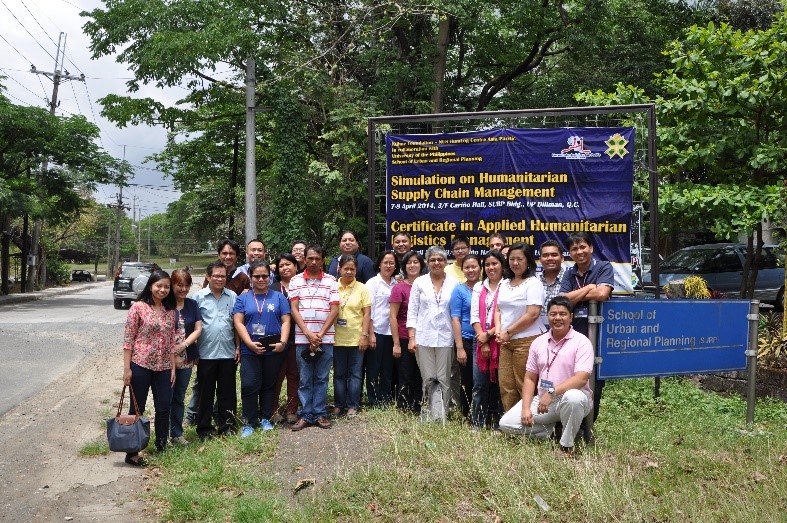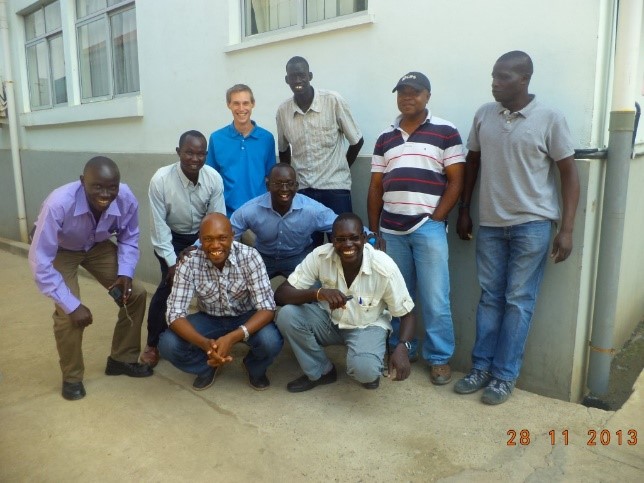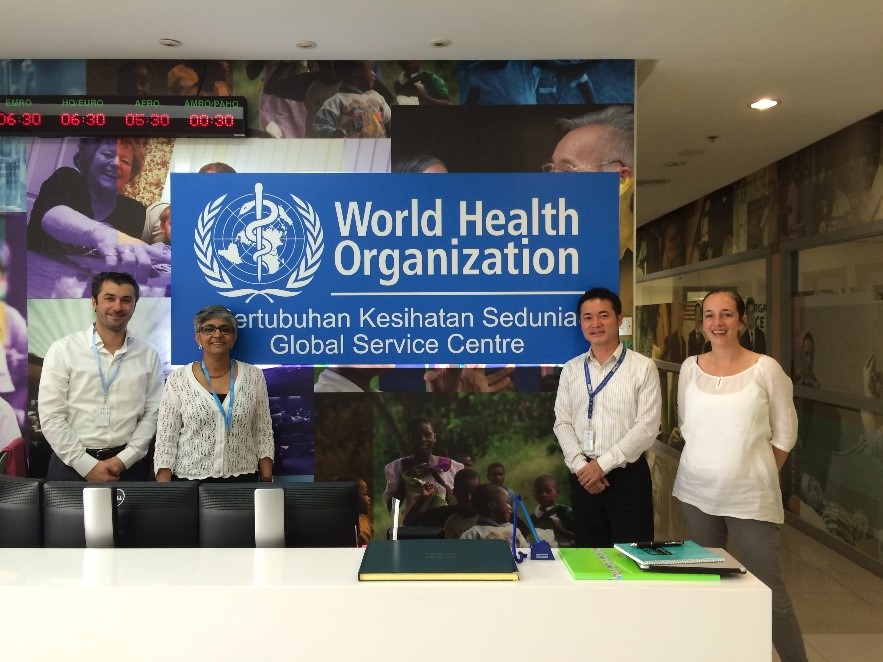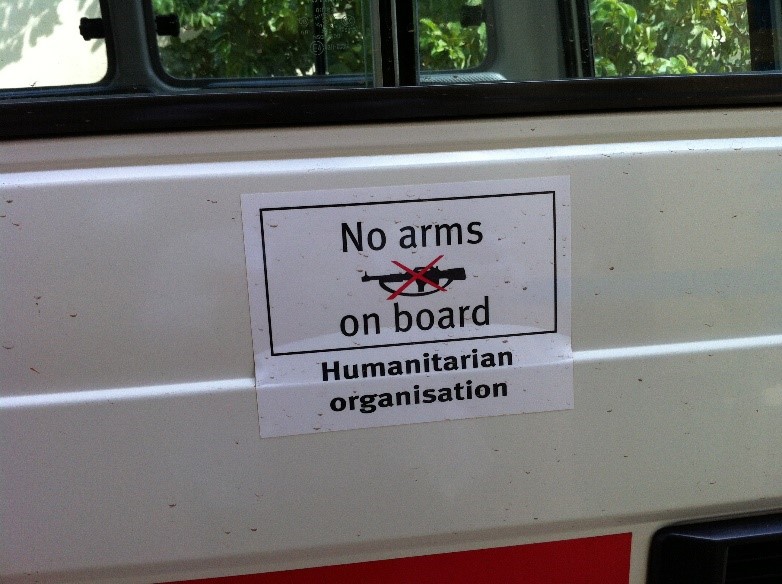Within the Department Management, Technology and Economics (MTEC) at ETH Zurich,the Chair of Logistics Management has access to a treasure trove of peer-reviewed knowledge that helps commercial companies get their goods to the right place, at the right time, at the best cost. From this we know that scientifically run logistics are a huge competitive advantage. Why not make this knowledge available to humanitarian workers who are trying to save lives by distributing food, shelter, and medicine? This was the question that the Kühne Foundation (now HELP AG), which endows our chair, asked over six years ago.
Humanitarian Logistics: a report from the Field
by Bublu Thakur-Weigold

ETH Zurich has worked with universities like the National University of Singapore and the University of the Philippines to educate field officers in professional logistics.
(photo credit: Bublu Thakur-Weigold/ETH Zurich)
(photo credit: Bublu Thakur-Weigold/ETH Zurich)
A number of eye-opening experiences followed this first conversation. Since then, I have learned that, contrary to popular belief, neither excessive overhead costs nor corruption are the biggest sources of inefficiency in the humanitarian sector. Logistics account for 80% of humanitarian organisations’ spending, and just like in commercial organizations, 50% of the materials purchased in a typical supply chain are wasted through poor systems design and practice. Too often, operations managers are working against a system which is set up to fail. This makes logistics by far the biggest opportunity for improvement for both commercial and non-profit operations.
Transferring commercial best practices into the context of emergency relief work required both translation and adaptation. The good news is that the effort paid off, and the process turned out to be a remarkable intellectual and personal journey. My own personal skills were put to the test, often dramatically. For example, I am used to teaching experienced managers and graduate students. Nothing could have prepared me for conversations with logistics managers in South Sudan who were former child soldiers. As it turned out, they could barely count because of the lost years of primary schooling. How do you explain systems dynamics without mathematics or case studies?

Plumpy Nut is the most frequently distributed form of food aid by the UN’s World Food Program. Getting these sachets to the hungry in a crisis, can be, however, a little bit like rocket science. (photo credit: Bublu Thakur-Weigold/ETH Zurich)

My students in Juba, South Sudan. This mixed team of national and international staff was responsible for distributing material
for shelter, medical, and latrine-building projects in that crisis region. (photo credit: Bublu Thakur-Weigold/ETH Zurich)
for shelter, medical, and latrine-building projects in that crisis region. (photo credit: Bublu Thakur-Weigold/ETH Zurich)
There were other stories that went beyond our imagination. We had to advise government officials who attributed every problem to corruption, when the root causes were often banal technical or systems breakdowns. The WHO officers who faced the backlash of the Ebola crisis made a deep impression on me as well. Here was an international organization which had traditionally worked in an advisory role. Suddenly, everyone expected them to deploy personnel to Ebola clinics in places like Liberia. How were they going to change an entrenched culture and implement an effective response overnight?
Operations researchers love to build abstract models, but we have discovered that action research and design science methodologies are powerful ways to address humanitarian problems like these. Our projects have generated a number of tested solutions which are now being implemented. This, in turn, is generating valuable data for our research publications. As our engagement with humanitarian problems deepens, we are also seeing how engineers can contribute to the dialogue on humanitarian policy, which is traditionally dominated by social scientists (like politicians, lawyers, sociologists). When engineers venture out into the field and immerse themselves in these urgent challenges, our ability to increase the reach of constrained resources will measurably impact the broader humanitarian agenda.

Together with the Kühne Foundation, and one of our MAS students, we worked with the WHO to assess the efficiency of their operations.
(photo credit: Bublu Thakur-Weigold/ETH Zurich)
(photo credit: Bublu Thakur-Weigold/ETH Zurich)

Photo credit: Bublu Thakur-Weigold/ETH Zurich
More information about costs of logistics and supply chains

About the author
Bublu Thakur-Weigold is Associate Director of Programs at the Chair of Logistics Management, where she works on both the ETH MBA SCM and Humanitarian Logistics programs.
